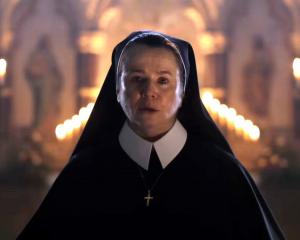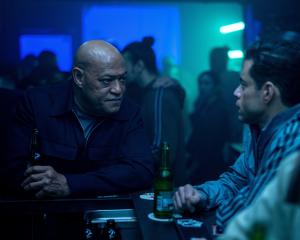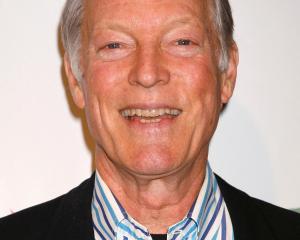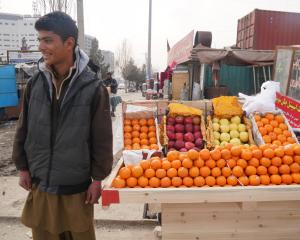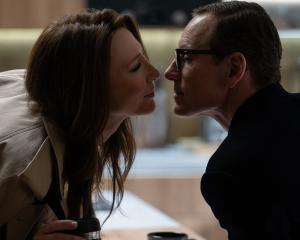
Francophilia and universal appeal are the two top contenders for why French film is so popular in New Zealand.
Winding up in Arrowtown this weekend and unfurling in Dunedin midweek, the annual Alliance Francaise French Film Festival is only going from strength to strength, Sebastien Donnadieu says.
The event, now in its 10th year, is the largest annual French cultural event in the country, says the festival's full›time director, speaking from his office across the road from the French embassy in Wellington.
With 37 films screening in 13 locations throughout the country, and a seven-fold increase in attendance figures since 2012, it is now one of the largest and fastest-growing French film festivals outside France on a per capita basis.
''New Zealanders are definitely Francophiles and cinema-goers,'' Mr Donnadieu says by way of explanation.
''French cinema has a unique way of tackling and investigating contemporary social issues. It also has an ability to tell stories about ordinary people that bring something extraordinary to these films.''
A classic example of French cinema is the festival's opening night choice Rosalie Blum, a warm and witty award›winning film about the unexpected and far-reaching consequences of a random encounter between a 30-something male hairdresser and a mysterious grocery store clerk.
The festival's patron, Kiwi actress Antonia Prebble, is a Francophile case in point.
Best known for her roles as Loretta West in Outrageous Fortune and Rita West in Westside, Prebble has studied and speaks French, and hopes to act in that language one day.
As patron, she has selected her four favourite films from the festival line-up: Courted, a dramatic exploration of class, race and religion set in a court during a murder trial, which was a multiple award winner at the 2015 Venice International Film Festival; Mediterranea, atimely story of two West African migrants' journey to Europe; the allegorical comedy The Brand New Testament; and, The Sweet Escape, which has been described as a charming tale of freedom and fulfilling one's dreams.
While many attend for the distinctive storytelling style and to imbibe ‘‘the music of the French language'', the films also have broad appeal, Mr Donnadieu says.
''Despite being a foreign language film festival, it has so many stories and it touches on so many issues that it actually makes it universal. People will definitely identify with most of the stories.''
Genres stretch from thriller and animation to documentary and road movie.
Dheepan is expected to be one of this year's highlights. It is the story of a Sri Lankan Tamil Tiger fighter who ''adopts'' a woman and a girl in order to seek political asylum in Europe. Attempts to build a peaceful life are threatened by the reality of the housing projects on the outskirts of Paris. Dheepan was the winner of the Palme d'Or at the 2015 Cannes International Film Festival.
For the first time, this year's festival features television shows: the first two episodes of two popular French network series, The Last Panthers, a jewel-heist crime drama based on real events, and Un Village Francais set in a German-occupied village during World War 2.
France has been taking its cinema to the world for a long time and on a large scale.
The aptly named Lumiere brothers, Auguste and Louis, of Lyon, invented cinema. The first film was publicly screened in Paris, in 1895. The following year, the first screening of French films outside France took place.
Today, France is the largest exporter of cinema after Hollywood, Mr Donnadieu says.
This year's screenings mark not only the 10th year of the festival but also the 120th anniversary of French film exports.


